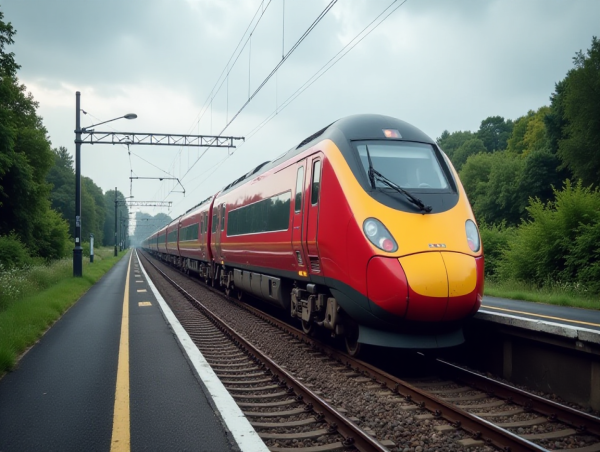The UK’s high-speed rail project HS2 will not meet its scheduled 2033 completion date or stay within budget, Transport Secretary Heidi Alexander told Parliament on Tuesday, citing systemic failures, mismanagement, and rising costs.
The announcement marks the latest setback for a troubled infrastructure programme once billed as a transformational project for the country’s transport network.
Alexander said she had received a “bleak” assessment from the new chief executive of HS2 Ltd, Mark Wild, who warned that the current trajectory of cost, scope, and timeline was “unsustainable.”
HS2 has been under construction for over a decade and has already seen its original plans significantly scaled back.
First trains will not run by 2033; project costs balloon
“There is no reasonable way to deliver on the 2033 target,” Alexander said, referencing Wild’s interim report.
She added that it would take several more months to establish a new schedule and cost estimate.
“I am drawing a line in the sand,” she told MPs, “and we are resetting how major infrastructure will be delivered in this country.”
Since HS2 was approved in 2012 with an initial price tag of £33bn, cost estimates have ballooned.
By 2013, the figure had climbed to £50bn, and by 2020, independent assessments projected eventual costs as high as £106bn.
The latest official estimates put the project’s remaining cost between £45bn and £57bn in 2019 prices.
Wild’s letter warned that unless the government renegotiates major engineering contracts and enforces stricter oversight, costs will continue to rise.
Flawed contracting model and rushed construction to blame for persistent delays
Wild’s report identified a series of longstanding issues that have plagued the project since its inception.
These include launching construction without finalised designs, a flawed contracting model, and major capability gaps in HS2 Ltd’s workforce.
The testing phase alone, he said, could take three years — far longer than the previously assumed 14 months
Wild has blamed the “cost-plus” nature of current contracts — which reward contractors regardless of overruns — for undermining budgetary discipline.
Financial analysts have described HS2 Ltd’s relationships with contractors as unbalanced and lacking proper accountability.
“The main source of cost overruns, as Stewart and Mark Wild (the ex-Crossrail chief executive now charged with salvaging the shambles) agree, were the works contracts,” writes Nils Pratley, The Guardian’s financial editor.
“The contracting model, combined with unrealistic targets, turned the contracts into “cost-plus” arrangements whereby contractors had little to no incentive to hit cost targets. Companies rang rings around the department and its arm’s-length body, HS2 Ltd,” he added.
Further, according to Wild, construction on HS2 began prematurely, before designs were stabilised, leading to unrealistic schedules and budgets.
His report also flagged a mismatch of skills within HS2 Ltd, which he described as “imbalanced,” with excessive corporate functions and critical shortages in commercial and technical expertise.
External shocks such as the COVID-19 pandemic, Brexit, and the war in Ukraine contributed to delays, Wild noted, but they merely compounded deeper, long-standing inefficiencies.
The Institution of Civil Engineers has similarly criticised the project’s contracting model, saying it created an “imbalance of power” in favour of construction firms.
Shadow transport secretary concedes ‘mistakes were made’
Shadow transport secretary Gareth Bacon also acknowledged the project’s turbulent history.
“Mistakes were made in the delivery of HS2,” he said, adding that the Conservatives bore responsibility for repeatedly delaying the project and letting costs spiral.
He pointed to the decision in 2023 under then-prime minister Rishi Sunak to scrap the Birmingham-Manchester leg as an outcome of longstanding failures.
Heidi Alexander confirmed that two reviews are underway to establish new protocols for large-scale infrastructure.
One, led by Wild, focuses on internal project management.
Another, by James Stewart, examines governance and delivery models. Both are intended to inform how future megaprojects are handled in the UK.
The post HS2 delay explained: mismanagement and rising costs push project past 2033 appeared first on Invezz




